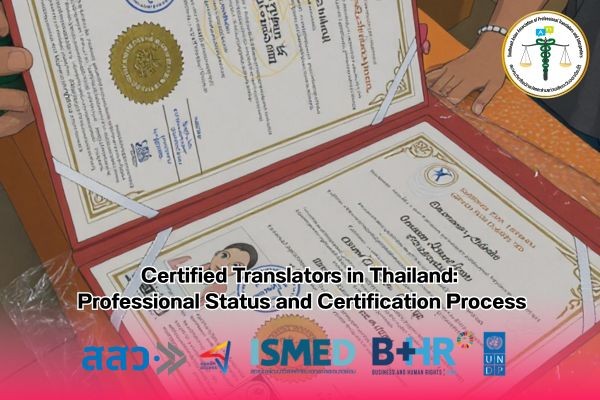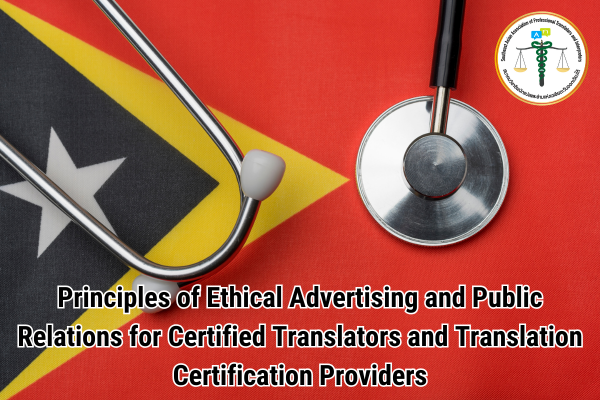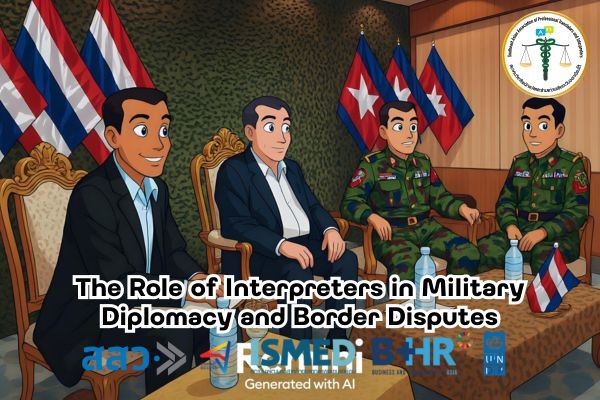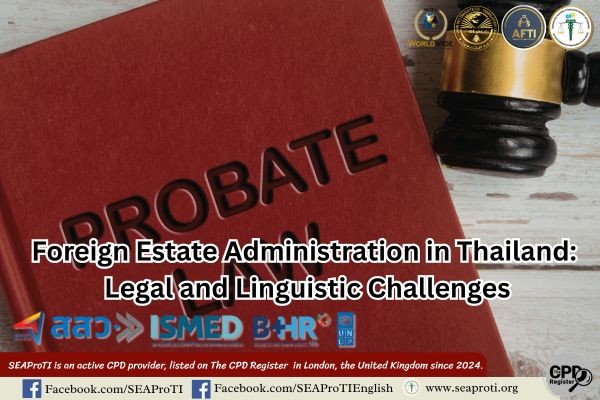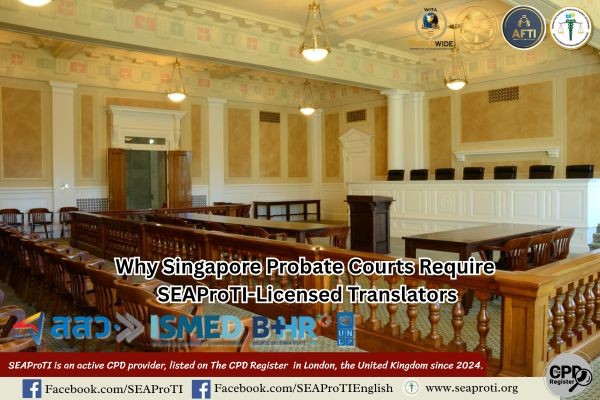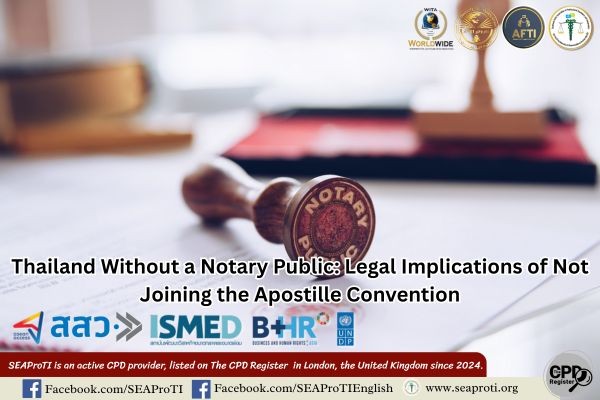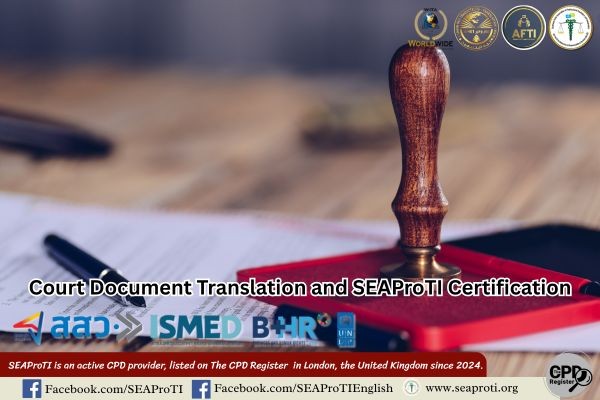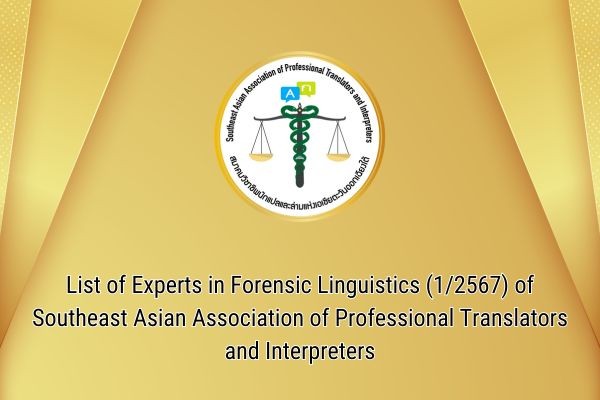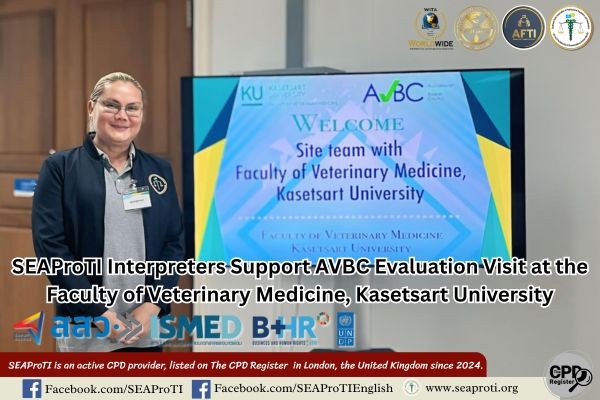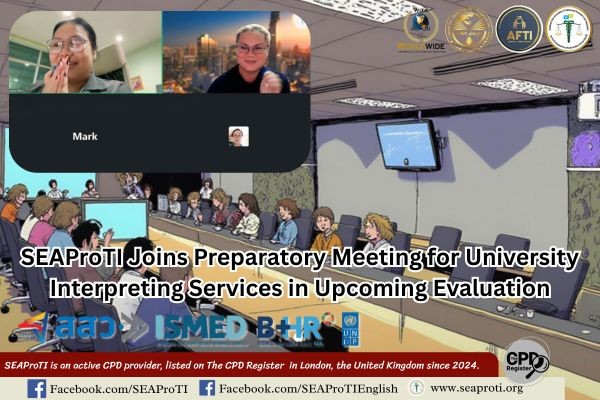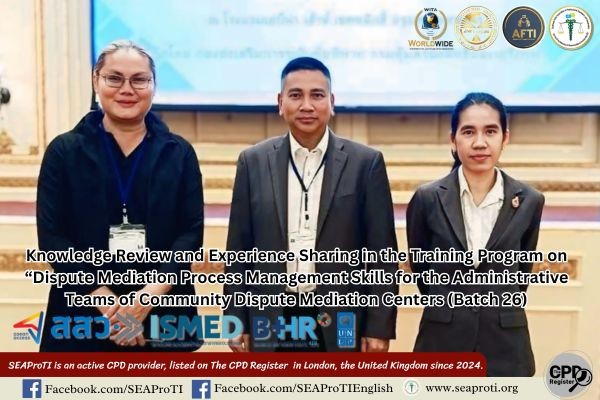Certified Translators in Thailand: Status, Roles, and the Process of Certified Translation
10 August 2025, Bangkok – The role of Certified Translators is critical in the preparation and submission of translated documents for use in cross-border administrative and legal processes, such as document authentication at the Department of Consular Affairs, Ministry of Foreign Affairs, or at foreign embassies in Thailand. This article examines the certification system for translators in Thailand, compares it with international standards, and outlines best practices for selecting certified translation services to ensure the accuracy and credibility of translated documents in legal and diplomatic contexts.
Introduction
In an era of globalization, translation of official documents for use in legal, diplomatic, and international business processes has become an increasingly common requirement. Such documents often require authentication by government agencies or embassies, making the services of officially certified translators essential (Kelly, 2018).
The Certification System for Translators in Thailand
Unlike certain European countries such as the Netherlands, Spain, or France, Thailand does not have a “Sworn Translator” system (Mayoral Asensio, 2014). Instead, certification of translators in Thailand is conducted by professional associations or recognized organizations, such as the Southeast Asian Association of Professional Translators and Interpreters (SEAProTI).
SEAProTI implements a structured qualification process that includes competency examinations, verification of professional history, and assessment of translation samples. Successful candidates receive an official identification card confirming their status as “Certified Translator,” which serves as a credential to attest to their professional qualifications and reliability (SEAProTI, 2024).
Certification of Translated Documents by Government Agencies and Embassies
Translations prepared by certified translators can be submitted to the Department of Consular Affairs for legalization or directly to foreign embassies in Thailand. Having a certified translation significantly increases the credibility of the document and reduces the likelihood of rejection by the receiving authority (Pym, 2010).
Selecting a Certified Translator
When selecting a certified translator, key considerations include:
- Experience and track record: Review relevant past work in the same document category.
- Certification from a recognized professional body, such as SEAProTI or other organizations accepted by embassies and the Department of Consular Affairs.
- Specialization in relevant fields – For example, legal, medical, or engineering translation.
- Understanding of the destination authority’s requirements – To ensure compliance and avoid rejection.
Conclusion
Although Thailand does not have a sworn translator system comparable to that in certain European jurisdictions, its professional certification framework—particularly the system operated by SEAProTI—has elevated translation standards and strengthened document credibility in international contexts. Clients should be aware of the differences between certification systems and select translators whose qualifications align with both their needs and the requirements of the receiving institutions.
References
- Kelly, N. (2018). Found in translation: How language shapes our lives and transforms the world. Penguin Random House.
- Mayoral Asensio, R. (2014). Translators sworn in: A European overview. The Translator, 20(2), 133–149. https://doi.org/10.1080/13556509.2014.904078
- Pym, A. (2010). Exploring translation theories. Routledge.
- Southeast Asian Association of Professional Translators and Interpreters. (2024, July 25). Certified Translators and Interpreters criteria. Royal Thai Government Gazette, 141(66 Ng), 100. https://ratchakitcha.soc.go.th/documents/26262.pdf
About SEAProTI Certified Translators, Certification Providers, and Interpreters
The Southeast Asian Association of Professional Translators and Interpreters (SEAProTI) has published official guidelines and eligibility criteria for individuals seeking registration as Certified Translators, Translation Certification Providers, and Certified Interpreters under Chapter 9 and Chapter 10 of the Royal Thai Government Gazette, issued by the Secretariat of the Cabinet, Office of the Prime Minister, on 25 July 2024 (Vol. 141, Part 66 Ng, p. 100). Full text available at: The Royal Thai Government Gazette
นักแปลรับรองในประเทศไทย: สถานะ บทบาท และกระบวนการรับรองเอกสารแปล
10 สิงหาคม 2568, กรุงเทพมหานคร – บทบาทของนักแปลรับรอง (Certified Translators) มีความสำคัญอย่างยิ่งต่อการยื่นเอกสารแปลเพื่อประกอบการดำเนินการทางราชการระหว่างประเทศ เช่น การรับรองเอกสารที่กรมการกงสุล กระทรวงการต่างประเทศ หรือสถานเอกอัครราชทูตประจำประเทศไทย บทความนี้วิเคราะห์ระบบการรับรองนักแปลในประเทศไทย เปรียบเทียบกับมาตรฐานสากล และอธิบายแนวทางการเลือกใช้บริการนักแปลเพื่อความถูกต้องและความน่าเชื่อถือของเอกสารแปลในบริบทกฎหมายและการทูต
บทนำ
ในยุคโลกาภิวัตน์ การแปลเอกสารเพื่อใช้ในกระบวนการทางกฎหมาย การทูต และธุรกิจระหว่างประเทศเป็นความจำเป็นที่เพิ่มขึ้นอย่างต่อเนื่อง โดยเฉพาะเมื่อเอกสารดังกล่าวต้องผ่านการรับรองจากหน่วยงานภาครัฐหรือสถานทูต การใช้บริการนักแปลที่ได้รับการรับรองอย่างเป็นทางการจึงมีบทบาทสำคัญ (Kelly, 2018)
ระบบการรับรองนักแปลในประเทศไทย
ประเทศไทยยังไม่มีระบบ “นักแปลสาบานตน” (Sworn Translator) ตามแบบที่ใช้ในบางประเทศยุโรป เช่น เนเธอร์แลนด์ สเปน หรือฝรั่งเศส (Mayoral Asensio, 2014) การรับรองนักแปลในประเทศไทยดำเนินการโดยสมาคมวิชาชีพหรือองค์กรที่เป็นที่ยอมรับ เช่น สมาคมวิชาชีพนักแปลและล่ามแห่งเอเชียตะวันออกเฉียงใต้ (Southeast Asian Association of Professional Translators and Interpreters: SEAProTI) ซึ่งมีเกณฑ์คัดเลือกตามมาตรฐาน ประกอบด้วยการสอบวัดความสามารถ ตรวจสอบประวัติวิชาชีพ และการพิจารณาผลงาน (SEAProTI, 2024)
ผู้ผ่านการรับรองจะได้รับบัตรประจำตัวและสิทธิ์ในการระบุสถานะ “Certified Translator” ในผลงานแปลของตน ซึ่งเป็นหลักฐานยืนยันคุณวุฒิและความน่าเชื่อถือ
การรับรองเอกสารแปลโดยหน่วยงานราชการและสถานทูต
เอกสารที่ผ่านการแปลโดยนักแปลรับรองสามารถยื่นต่อกรมการกงสุล กระทรวงการต่างประเทศ เพื่อขอการรับรองคำแปล หรือใช้ในการยื่นเอกสารที่สถานทูตต่างประเทศในประเทศไทย การมีคำรับรองจากนักแปลที่ได้รับการรับรองจะช่วยเพิ่มความน่าเชื่อถือและลดโอกาสที่เอกสารจะถูกปฏิเสธ (Pym, 2010)
การเลือกนักแปลรับรอง
การเลือกนักแปลรับรองควรพิจารณาจากปัจจัยดังนี้:
- ประสบการณ์และผลงานที่ผ่านมา ตรวจสอบตัวอย่างผลงานที่เกี่ยวข้องกับประเภทเอกสารที่ต้องการใช้
- การรับรองจากองค์กรวิชาชีพ เช่น SEAProTI หรือหน่วยงานที่สถานทูตและกรมการกงสุลยอมรับ
- ความเชี่ยวชาญเฉพาะด้าน เช่น กฎหมาย การแพทย์ หรือวิศวกรรม
- ความเข้าใจข้อกำหนดของหน่วยงานปลายทาง เพื่อให้แน่ใจว่าเอกสารจะไม่ถูกปฏิเสธในการใช้งานจริง
สรุป
แม้ประเทศไทยจะไม่มีระบบนักแปลสาบานตนเช่นในยุโรป แต่การมีระบบการรับรองนักแปลโดยองค์กรวิชาชีพ เช่น SEAProTI ช่วยยกระดับมาตรฐานการแปลและเพิ่มความเชื่อถือของเอกสารในบริบทระหว่างประเทศ ผู้ใช้บริการควรตระหนักถึงความแตกต่างของระบบการรับรองและเลือกนักแปลที่เหมาะสมกับความต้องการและข้อกำหนดของหน่วยงานที่เกี่ยวข้อง
เอกสารอ้างอิง
- Kelly, N. (2018). Found in translation: How language shapes our lives and transforms the world. Penguin Random House.
- Mayoral Asensio, R. (2014). Translators sworn in: A European overview. The Translator, 20(2), 133–149. https://doi.org/10.1080/13556509.2014.904078
- Pym, A. (2010). Exploring translation theories. Routledge.
- Southeast Asian Association of Professional Translators and Interpreters (SEAProTI). (2024, July 25). Certified Translators and Interpreters criteria. Royal Thai Government Gazette, 141(66 Ng), 100. https://ratchakitcha.soc.go.th/documents/26262.pdf
เกี่ยวกับนักแปลรับรอง ผู้รับรองการแปล และล่ามรับรองของสมาคมวิชาชีพนักแปลและล่ามแห่งเอเชียตะวันออกเฉียงใต้
สมาคมวิชาชีพนักแปลและล่ามแห่งเอเชียตะวันออกเฉียงใต้ (SEAProTI) ได้ประกาศหลักเกณฑ์และคุณสมบัติผู้ที่ขึ้นทะเบียนเป็น “นักแปลรับรอง (Certified Translators) และผู้รับรองการแปล (Translation Certification Providers) และล่ามรับรอง (Certified Interpreters)” ของสมาคม หมวดที่ 9 และหมวดที่ 10 ในราชกิจจานุเบกษา ของสำนักเลขาธิการคณะรัฐมนตรี ในสำนักนายกรัฐมนตรี แห่งราชอาณาจักรไทย ลงวันที่ 25 ก.ค. 2567 เล่มที่ 141 ตอนที่ 66 ง หน้า 100 อ่านฉบับเต็มได้ที่: นักแปลรับรอง ผู้รับรองการแปล และล่ามรับรอง


